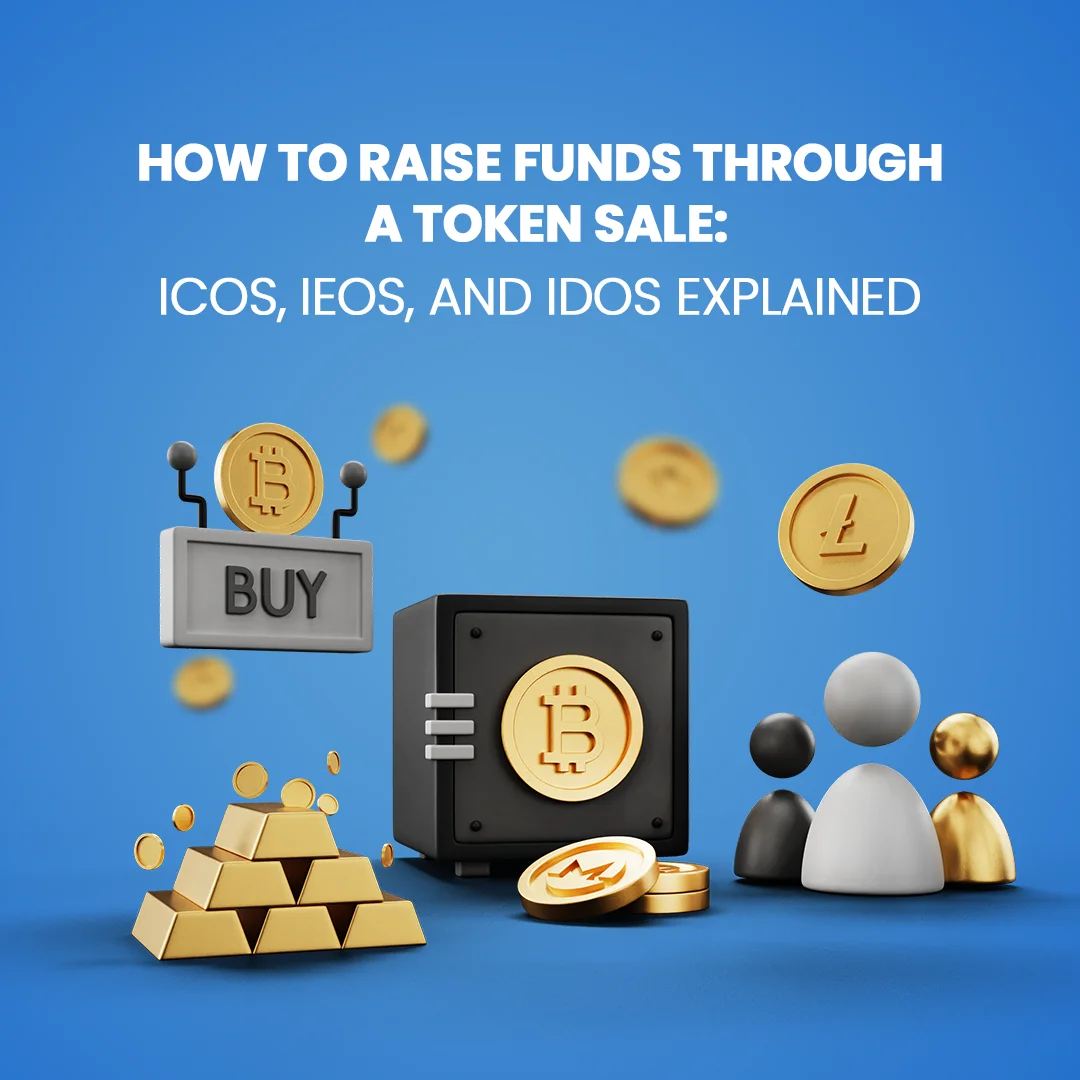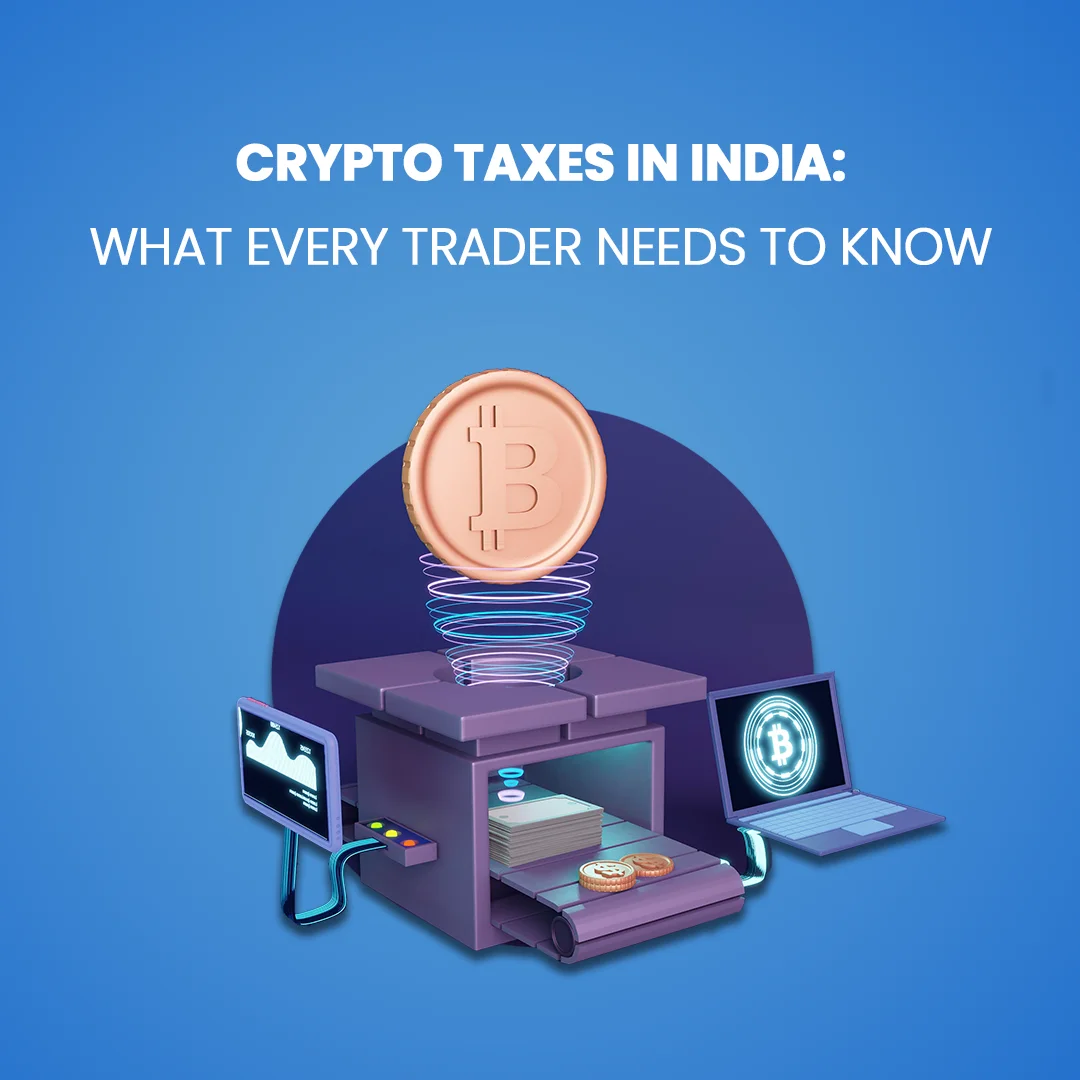

A Guide for Indian Investors to Avoid Scams in Crypto Trading
When it comes to money, scammers are inevitable. The same can hold true for cryptocurrencies.
By the way, if you are confused about cryptocurrencies, you are not alone; there are many still who haven’t been able to connect fully with the world of crypto.
It is extremely important for one to understand how cryptocurrencies vary from traditional cash and other payment methods, and additionally, how to identify potential scams and hacking of cryptocurrency accounts, before using or investing in them.
We are here today to make your life easier by sharing what crypto scams mean and what the types of scams that have happened in the past are. You may use this friendly article to stay aware of how to protect yourself from the scammers.
Read Also: Is Crypto Trading Legal in India? Understanding the Current Regulations
What do we mean by fraudulent activity in the world of crypto?
Any fraudulent operation intended to trick you, as an individual investor or an organization, into giving up your digital assets is known as a cryptocurrency scam.
Crypto scams can take many different shapes and frequently leverage feelings like greed or fear.
Due to the industry’s early years, cryptocurrency scams are a little different.
Since blockchain technology is new and complicated too, many consumers lack the knowledge necessary to defend themselves against scammers.
Additionally, people with illicit motives find cryptocurrency even more appealing because blockchain transactions are considered to be anonymous.
Some Real-Life Scams Of The Past
Following a cyberattack in February 2022, Wormhole, a cryptocurrency exchange platform, lost $320 million. In addition to this attack, a Federal Trade Commission investigation claims that since 2021, bitcoin scammers have made off with over $1 billion.
According to Lloyds Banking Group in the United Kingdom, the number of bitcoin frauds increased by 23% in 2023 compared to 2022.
The number of bitcoin scams decreased in the first half of 2023. However, according to a survey by bug bounty platform Immunefi, the incidence of frauds rose dramatically in the third quarter of 2023.
The Mixin incident on September 25th, in which hackers stole around $200 million, contributed to the spike.
Understanding Digital Money
By moving funds to a bank account, digital currency provides a smooth transition from assets held online to actual cash.
Digital money, in contrast to physical currency, is stored in a safe digital wallet. But not all digital currencies are created equal.
Bitcoin and other cryptocurrencies stand out because they are decentralized and rely on blockchain technology for verification, doing away with the need for middlemen like banks.
Blockchain presents special difficulties even if it offers strong security. Since there is no central monitoring in a decentralized system, recovering stolen cryptocurrency is far more difficult.
Even with today’s advanced technology, fraudsters frequently turn back to old-fashioned deception techniques, taking advantage of human error or lax security procedures to obtain digital assets.
This emphasizes how crucial it is to remain watchful and follow best practices in order to protect your digital assets.
Read Also: Beginner’s Paradise to Master Crypto Trading in India
Here are a few typical crypto scams to be aware of
There have been ample cases of crypto scams for years, and being aware of these incidents only helps us stay alert and careful.
Phishing schemes
Phishing scams are the most common, even though they have been around for a while. People still happen to give in to this kind of scam.
To obtain personal information, including cryptocurrency wallet key information, scammers send emails with harmful links to a phony website.
Users of digital wallets are given a single private key, unlike passwords. However, changing a private key is difficult if it is taken.
Since each key is exclusive to a wallet, updating this key requires creating a new wallet.
Never submit sensitive information from an email link to prevent falling victim to phishing attacks. Regardless of how authentic the web page or link seems, you may always go straight to the website.
Dating App Scams
Crypto scams are not uncommon on dating apps. These scams involve relationships in which one party takes the time to earn the trust of the other, usually over large distances and exclusively online.
One side gradually begins persuading the other to donate or purchase cryptocurrencies. The dating scammer vanishes after they have the money. Another name for these frauds is “pig butchering scams.”
Fake cryptocurrency trading platforms
Scammers may use promises of a fantastic cryptocurrency exchange or even more bitcoin to entice investors.
In actuality, however, there is no exchange, and the investor is unaware that it is fraudulent until they have lost their deposit.
To avoid an unfamiliar exchange, stick to well-known cryptocurrency exchange marketplaces like AngelX Speedo, Coinbase, Crypto.com, and Cash App.
Before entering any personal information, do some research and visit industry websites to learn more about the legitimacy and reputation of the exchange.
Flash loans Attacks
Loans for brief periods of time, like seconds to execute a trade, are known as flash loans. These loans are common in the cryptocurrency market because traders use the money to purchase tokens at a lower price on one platform and then quickly sell those tokens on another platform to profit.
The flash loan is paid back after all of these profitable trades are completed in a single transaction.
Because there are no credit checks or collateral requirements for flash loans, an attacker can use the money borrowed to manipulate prices on a decentralized finance network.
The attacker creates many buy-and-sell orders to give the impression that there is a lot of demand in order to manipulate the pricing.
When prices rise, the attacker then cancels orders, which instantly lowers the price.
After that, the attacker can profit by purchasing on a separate platform at a reduced cost.
Platypus Finance lost $8.5 million as a result of a flash loan attack that occurred in February 2023.
Ponzi scheme
Ponzi schemes use the money made from new investors to pay out to older investors.
Scammers using cryptocurrency will use bitcoin to entice new investors. It is a cyclical scheme as there are no genuine investments; it is all about snatching up new investors.
The promise of enormous riches with minimal risk is the primary appeal of a Ponzi scheme.
However, there are never any guarantees of profits, and there are always risks associated with any investment.
Rug Pull Scams
Investment scammers “boosting up” a new project, coin, or non-fungible token (NFT) in order to obtain funds is known as a rug pull scam.
Once the scammers have the money, they take it and escape. Investors are left with a worthless investment since the coding for these products prohibits users from selling bitcoin once they have purchased it.
NFTs, which are unique digital assets, are also frequently the target of rug pull frauds.
Get to Know: The World of Non Fungible Tokens – Understanding the Basics
The Squid Coin Scam
This took its name from the well-liked Netflix comedy Squid Game, was a well-known variation of Rug Pull Scam.
In order to earn cryptocurrency, investors had to participate in the game. They would purchase tokens for online games and then exchange them for other cryptocurrencies.
The Squid token’s value increased from one cent to almost $90 per token.
Trading eventually ceased, and the funds vanished. When people tried to sell their tokens but were unsuccessful, the value of the token dropped to zero.
At the time of this scam, these investors had to give away the crooks roughly $3 million.
Scams involving cryptocurrency giveaways on social media
Numerous bogus posts that promise bitcoin giveaways can be seen on social media platforms. In order to trick consumers, some of these frauds even use phony celebrity accounts to advertise the giveaway.
But when someone clicks on the offer, they are redirected to a fake website that requests verification before they can get their hands on the bitcoin.
To demonstrate the legitimacy of the account, a payment is made as part of the verification procedure.
The victim may lose this money, or worse, they may click on a malicious link and have their cryptocurrencies and personal data taken.
Bitcoin investment plans
Fraudsters in bitcoin schemes approach clients under the guise of experienced “investment managers.”
The alleged investment managers who are part of the scam convince their victims that they will profit from their investments and boast that they have made millions of dollars investing in cryptocurrencies.
The scammers may ask for an upfront payment to get started. In order to obtain access to a person’s cryptocurrency, scammers may also ask for personal identity details under the pretense of transferring or depositing money.
The use of bogus celebrity endorsements is another kind of investment scam.
In order to provide the impression that the celebrity is encouraging a significant cash benefit from the investment, scammers use authentic images and overlay them on phony accounts, advertisements, or articles.
With respectable brand names like ABC or CBS and polished websites and logos, the sources for these assertions seem to be authentic. But the endorsement is phony.
Here are some ways you may avoid being caught into the crypto scam-
- Scammers are always coming up with new ways of employing digital currencies to take your money. Here are some tips to help you avoid falling for a crypto scam.
- Scammers are the only ones that demand cryptocurrency payments. No trustworthy company will ask you to send bitcoin in advance—not to make a purchase or safeguard your funds. It is always a fraud.
- Profits or large returns are only guaranteed by con artists. People that claim you can make money in the cryptocurrency markets quickly and easily may not be trusted.
- Do not combine investing advice with online dating. It is a fraud if you meet someone on a dating app or website who wants to teach you how to invest in cryptocurrency or requests that you transfer them cryptocurrency.
Here Are Some Ways For Reporting Crypto Scams-
Portal for Reporting Cybercrimes (Cybercrime.gov.in)
A specific site for reporting frauds and other cybercrimes involving cryptocurrencies is offered by the Ministry of Home Affairs.
Traders can submit complaints by providing information on the scam, including wallet addresses, transaction IDs, and correspondence. Whistleblowers can report anonymously through this easy-to-use platform, protecting their anonymity.
Economic Offenses Wing (EOW)
Traders can contact their state’s Economic Offenses Wing for financial offenses involving significant funds.
Investigating intricate frauds, especially those involving cryptocurrency, is EOW’s area of expertise.
To start a thorough investigation, provide all pertinent paperwork, including transaction records and proof of fraudulent activities.
Local Police Stations and Cyber Cells
The easiest places to report cryptocurrency frauds are local police stations and cyber cells.
For help, traders can get in touch with specialized cyber teams or submit a formal complaint.
Having thorough proof on hand, such as emails, chat logs, or images, makes it easier for authorities to comprehend the situation and act quickly.
Money Laundering Cases Enforcement Directorate (ED)
Traders can contact the ED if a cryptocurrency fraud involves illicit international fund transfers or money laundering.
The organization looks into situations in accordance with FEMA and the Prevention of Money Laundering Act (PMLA).
The closest ED office is the place to file complaints and provide documentation of any dubious transactions.
Banking Channels and Consumer Protection
Traders can use the CMS portal to make complaints to the Reserve Bank of India’s Ombudsman if the scam involves banks, payment gateways, or platforms that facilitate cryptocurrency transactions.
In a similar vein, traders can contact the National Consumer Disputes Redressal Commission (NCDRC) against dishonest schemes by service providers.
SEBI for Investment Fraudulent Schemes
The Securities and Exchange Board of India (SEBI) is the place to report securities scams involving cryptocurrencies, such as fraudulent initial coin offerings (ICOs) or cloaked investment plans.
To file a complaint, visit scores.gov.in and use the SEBI Complaints Redress System (SCORES). Make sure to include any correspondence or investment records pertaining to the plan.
Global or Blockchain-Related Channels
Traders can request assistance from international platforms like as Interpol through the CBI or specialized blockchain research firms if the scam involves foreign exchanges or wallets.
Businesses such as Chainalysis could help track down stolen money on the blockchain. The possibility of recovery and legal action against offenders is increased by timely reporting.
In totality, we must know that although cryptocurrency scams are a dreadful reality that exists in the rapidly changing digital financial industry, they serve as a reminder of the need for being vigilant and embracing awareness.
Although blockchain technology is uplifting, its decentralized and pseudonymous nature also makes it a haven for fraud.
Staying secure requires being able to see red flags, such as offers that promise assured returns, unsolicited investment advice, or dubious platforms.
The necessity for traders to adhere to best practices—verify platforms, utilize secure wallets, and always double-check transaction details—increases with the growth of cryptocurrency use in India and around the world.
Not only does reporting frauds help safeguard your investments, but it also makes the trading environment safer for everyone.
Keep in mind that your knowledge is your best asset while trading cryptocurrencies, not simply your investment.
FAQs
Crypto scams are fraudulent activities intended to trick people or businesses into losing their digital assets; they frequently use phishing, phony platforms, or Ponzi schemes.
Watch out for requests for upfront bitcoin payments, unsolicited investing advice, and guaranteed profits. These are common warning signs of scams.
Stop communicating with the fraudster right away, protect your accounts, collect proof, and report the incident to authorities using websites such as cybercrime.gov.in.
Make use of safe wallets, trade on trustworthy platforms exclusively, and verify transaction information twice. Never reply to unsolicited investment pitches or give up secret keys.
The decentralized nature of blockchain can make recovery difficult, but your chances can be increased by promptly notifying to authorities and using blockchain analysis services.







